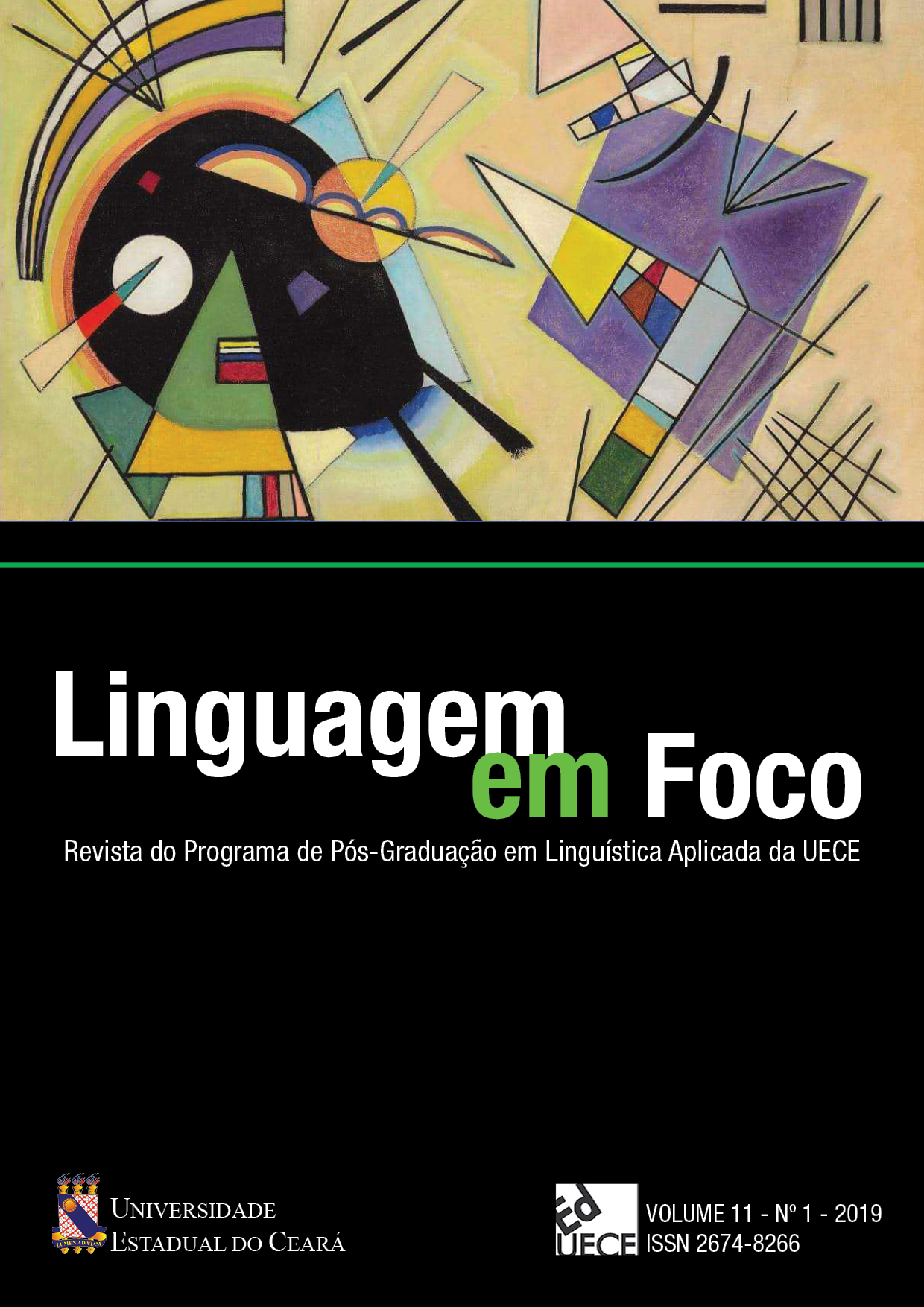A Semiotic Approach of Multimidiatic Genres
A Perspective to the Teaching – Learning of Portuguese in the Digital Era
DOI:
https://doi.org/10.46230/2674-8266-11-2941Keywords:
Contract of Media Communication, Nova Escola Magazine, Reading TeachAbstract
The new social practices imply that the constant presence of the text multimedia as a form of communication in people's lives, enhanced by digital technologies, imposes a new way of being and living. In our research that we have been carrying out, the results have shown the need for the teaching of reading and writing multimedia text to become the object of teaching in Portuguese language classes. Therefore, it is intended here to discuss and reflect on the possible semiotic approaches of the multimedia text. The theoretical assumptions are: (1) The diversity of genres is linked to the situation, social position and personal relationships of reciprocity between participants in the communication (2) Dealing with language in the school environment requires a multi-element pedagogy (3) The multimodality present in such a text comprises that the constitutive semiotic modes are organized based on semantic relations (4) All semiotics are multimedia semiotics and all literacy is multimedia literacy (5) The teaching of the multimedia text must take place through a metalanguage that facilitates learning Thus, in this work, methodological perspectives are presented for the teaching-learning of reading and text production in multimedia language.
Downloads
References
Design of Social Futures, Routledge, London, 2000.
GUIMARÃES, H. M. Concepções, crenças e conhecimento - afinidades e distinções essenciais. Quadrante v. XIX, n.º 2, p. 81-102. 2006. Disponível em: http://hdl.handle.net/10451/11019. Acesso em jun 2018.
JEWITT, C. Multimodality and Literacy in School Classrooms. Review of research in Education. v. 32, p. 241. 2008. Disponível em: https://journals.sagepub.com/doi/full/10.3102/0091732x07310586 Acesso: Ago. 2018.
KRESS, G.; VAN LEEUWEN, T. Multimodal Discourse: The modes and media of contemporary communication. New York: Oxford University Press, 2001.
LEMKE, J. Letramento metamidiático: transformando significados e mídias. Trab. Ling. Aplic., Campinas, 49(2): 455-479, Jul./Dez. 2010.
MAGALHÃES, C. M. & ARAÚJO, W. M. de Os professores e o medo da mídia. Inter-Ação, Goiânia, v. 39, n. 3, p. 575-592, set./dez. 2014.
PEREIRA, J. N. A textualização multimodal do texto didático: implicações teórico-metodológicas. In: PEREIRA, J. N. e SILVA, S. B. B. (Org.) Língua Portuguesa e Literatura no livro didático: desafios e perspectivas. Campinas, S.P.: Pontes Editores, 2018.
PEREIRA, J. N. Gêneros multissemióticos: questão de multiletramento. In:_____ FREITAS, J. H. & ASSUMPÇÃO. S. S. (Org.) Redes de Aprendizagem entre a escola e a universidade. Salvador, EDUFBA, 2019.
SILVA, S. B. B. & PEREIRA, J. N.(Org.). Língua Portuguesa e literatura no livro didático: desafios e Perspectivas. Campina, SP: Pontes, 2018.
KRESS, G.; VAN LEEUWEN, T. Multimodal Discourse: The modes and media of contemporary communication. New York: Oxford University Press, 2001.
UNSWORTH, L. Towards a metalanguage for multiliteracies education: Describing the meaningmaking resources of language-image interaction. English Teaching: Practice and Critique May 2006, v. 5, n. 1. Disponível em: http://education.waikato.ac.nz/research/files/etpc/2006v5n1art4.pdf pp. 55-76. Acesso maio 2018.
Downloads
Published
How to Cite
Issue
Section
License
Copyright (c) 2020 Julio Neves Pereira

This work is licensed under a Creative Commons Attribution 4.0 International License.
Authors who publish in Linguagem em Foco Scientific Journal agree to the following terms:
- Authors retain the copyright and grant the journal the right of first publication. The articles are simultaneously licensed under the Creative Commons Attribution License which allows sharing the work with an acknowledgement of its authorship and initial publication in this journal.
- The concepts issued in signed articles are the absolute and exclusive responsibility of their authors. Therefore, we request a Statement of Copyright, which must be submitted with the manuscript as a Supplementary Document.
- Authors are authorized to make the version of the text published in Linguagem em Foco Scientific Journal available in institutional repositories or other academic work distribution platforms (ex. ResearchGate, Academia.edu).





























